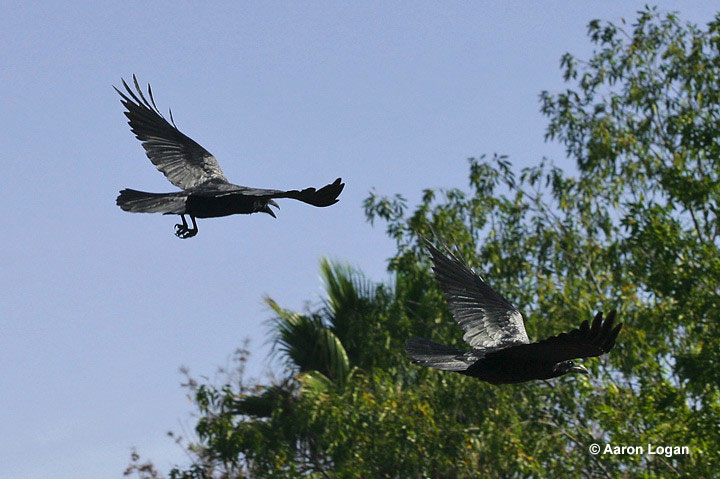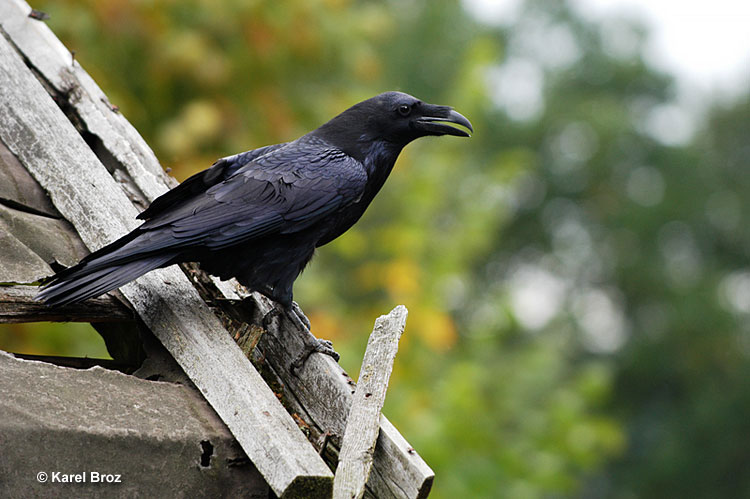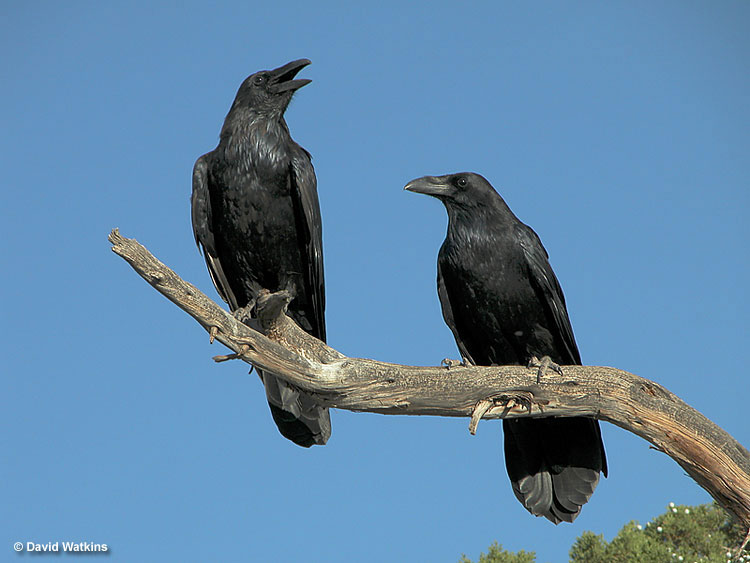
Names for groups of animals can be unique and even funny! You’re probably familiar with common group names, like a group of ants being an “army” and a group of dolphins being a “pod.”
So what is a group of ravens called? The common names for a group of ravens are conspiracy, rave, flock, and unkindness. Continue reading to learn about the different collective nouns for these birds and more!
On this page
What is a Group of Ravens Called?
Unlike other birds, ravens aren’t given different names depending on their behavior or where they’re located. Instead, the primary term for a group of ravens is an unkindness.
Ravens are very social birds. They live in groups, and their relations can be compared to interactions of other smart animal species. Recent research has shown that ravens are not just aware of the social dynamics among their own group but are also mindful of the social dominance and dynamic differences in other groups of ravens.
An unkindness of ravens exhibits a transparent hierarchy, which allows higher-ranking birds to experience more privileges, such as better access to resources and food, than lower-ranking ravens.
These birds use certain calls to adhere to this social order. Higher-ranking birds are sometimes challenged by lower-ranking birds using a reversal, rebellious call.

Adult ravens are afraid of change. They don’t like anything unfamiliar or new and are particularly sensitive to disturbances and changes. A shift in dominance in the group is usually met with stress responses such as over-preening from individuals. Additional names for a group of ravens include flock, rave, conspiracy, and unkindness.
Why Is It Called An Unkindness?
A group of ravens is called an unkindness because they have a reasonably long history of being associated with bad omens and other dark foretellings.
Additionally, these birds have croaking calls and all-black plumage that remind you of an evil-doer’s pet.
On top of that, they have a reputation for being tricksters and will occasionally kill and consume the eggs and babies of other birds and even some adult birds if they’re small enough. Of course, none of this helps their reputation.
It’s important to note that while all of these things seem inherently bad, the behavior ravens exhibit is no different than many other bird species. For example, blue jays symbolize confidence and strength. But they, too, consume smaller birds, dead animals, bird eggs, and baby birds.
Do All Ravens Group Together?
Ravens are more likely to travel with at least one other bird instead of solo. These birds make both smaller and larger groups; smaller groups are more common outside of the mating season, while a group on the larger side is more common during the breeding season. Ravens almost never form groups with the crow.
Related: Ravens vs Crows
The primary reason ravens gather together is for the breeding season. During this time, ravens come together to find a mate. Male ravens are particularly vocal this time of year, giving throaty, loud calls that are easily distinguishable from the call a crow makes. Once ravens have found their mate, the larger group will usually disperse.

Another reason ravens group together is to feed on roadkill and other dead animals. Groups of birds that gather for this reason will only stick together for a small period of time. Once the carcass has been thoroughly picked clean, ravens will part ways to find food elsewhere.
Frequently Asked Questions
Is a group of ravens a flock?
Yes, a group of ravens is called a flock. A group of ravens is called a variety of terms, but the most common terms are unkindness and flock.
What are two ravens called?
If you see two ravens together, you’re seeing a bonded pair. They got this name because ravens are monogamous and have a bond that usually lasts for life.
Do ravens mix with crows?
Ravens and crows do not get along. Even though these two birds are very similar to each other, they often have quarrels. New research has suggested that crows are the instigators. They cause 97% of the altercations.
Read Next – Are Birds Mammals?

